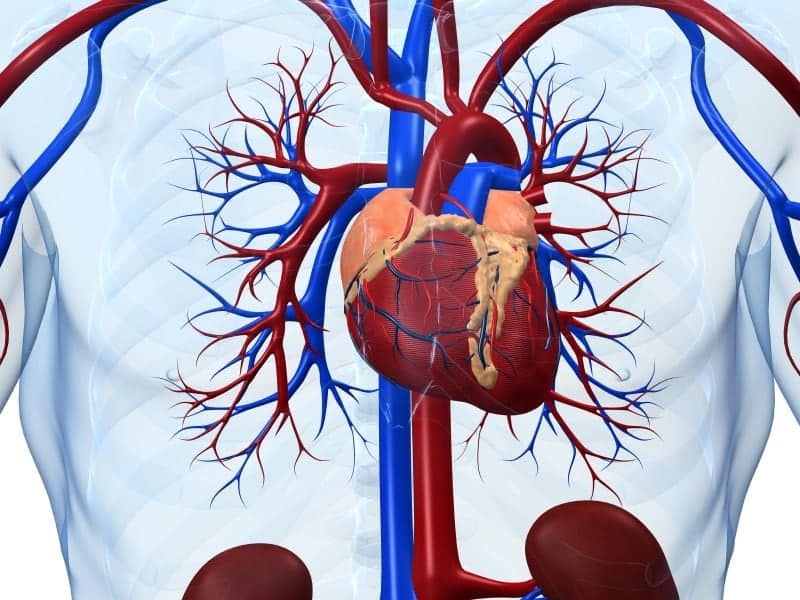FRIDAY, June 14, 2019 (HealthDay News) — Cardiac radiation dose exposure is a modifiable cardiac risk factor for major adverse cardiac events (MACE) and all-cause mortality (ACM) in patients with non-small cell lung cancer (NSCLC), according to a study published in the June 18 issue of the Journal of the American College of Cardiology.
Katelyn M. Atkins, M.D., Ph.D., from the Dana-Farber Cancer Institute in Boston, and colleagues conducted a retrospective analysis to examine whether cardiac radiation dose predicts MACE and ACM in 748 locally advanced NSCLC patients treated with thoracic radiotherapy.
The researchers found that 77 patients developed one or more MACE after a median follow-up of 20.4 months (two-year cumulative incidence, 5.8 percent; 95 percent confidence interval [CI], 4.3 to 7.7 percent), and 533 patients died. A correlation was noted between mean radiation dose delivered to the heart and a significantly increased risk for MACE (adjusted hazard ratio, 1.05/Gy; 95 percent CI, 1.02 to 1.08/Gy; P < 0.001) and ACM (adjusted hazard ratio, 1.02/Gy; 95 percent CI, 1.00 to 1.03/Gy; P = 0.007). In coronary heart disease (CHD)-negative patients, but not CHD-positive patients, the mean heart dose (≥10 Gy versus <10 Gy) was associated with a significantly increased risk for ACM (178 versus 118 deaths; hazard ratio, 1.34; 95 percent CI, 1.06 to 1.69; P = 0.014), with two-year estimates of 52.2 (95 percent CI, 46.1 to 58.5 percent) versus 40.0 percent (95 percent CI, 33.5 to 47.4 percent).
“When treating patients with lung cancer, it’s a balance of risks,” Atkins said in a statement. “But we need to start thinking about where there’s room for improvement in optimizing treatment for patients and room for improvement in terms of collaborating with primary care physicians and cardiologists.”
Several authors disclosed financial ties to the pharmaceutical industry.
Copyright © 2019 HealthDay. All rights reserved.



